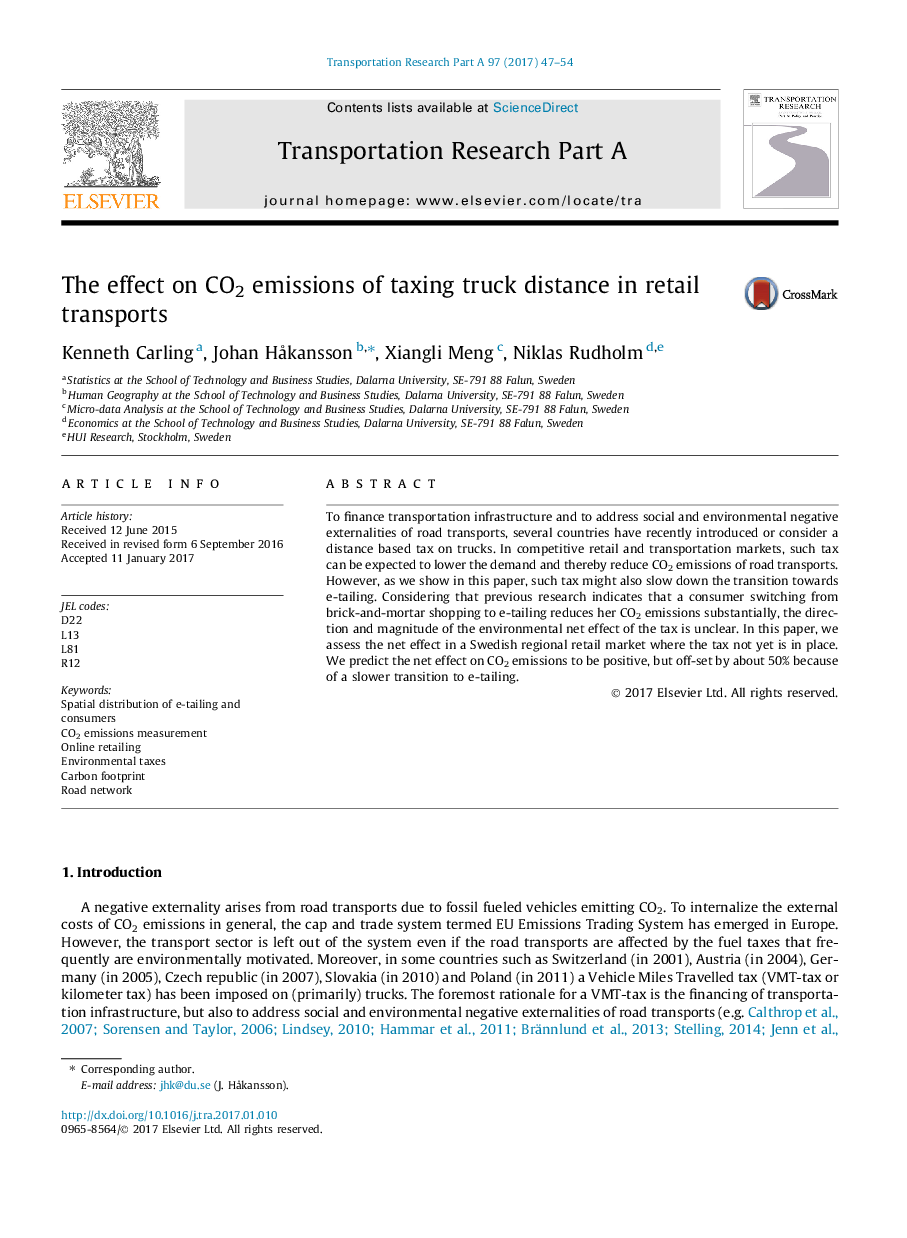| Article ID | Journal | Published Year | Pages | File Type |
|---|---|---|---|---|
| 4929156 | Transportation Research Part A: Policy and Practice | 2017 | 8 Pages |
Abstract
To finance transportation infrastructure and to address social and environmental negative externalities of road transports, several countries have recently introduced or consider a distance based tax on trucks. In competitive retail and transportation markets, such tax can be expected to lower the demand and thereby reduce CO2 emissions of road transports. However, as we show in this paper, such tax might also slow down the transition towards e-tailing. Considering that previous research indicates that a consumer switching from brick-and-mortar shopping to e-tailing reduces her CO2 emissions substantially, the direction and magnitude of the environmental net effect of the tax is unclear. In this paper, we assess the net effect in a Swedish regional retail market where the tax not yet is in place. We predict the net effect on CO2 emissions to be positive, but off-set by about 50% because of a slower transition to e-tailing.
Related Topics
Physical Sciences and Engineering
Engineering
Civil and Structural Engineering
Authors
Kenneth Carling, Johan HÃ¥kansson, Xiangli Meng, Niklas Rudholm,
